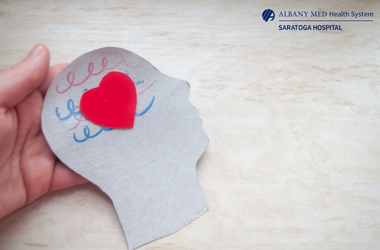Blog
There are a variety of disorders that impact brain function—memory, behavior, thinking, and emotion—collectively referred to as dementia. The most common of these disorders is Alzheimer's Disease. Dementia affects more than 50 million people around the world, and a new case occurs every three seconds. By 2050, an estimate 139 million people will be living with one of these brain disorders.
 As we recognize World Alzheimer's Day, we encourage you to educate yourself and your loved ones on the signs and symptoms, as well as the steps you can take to reduce your risk.
As we recognize World Alzheimer's Day, we encourage you to educate yourself and your loved ones on the signs and symptoms, as well as the steps you can take to reduce your risk.
Signs and Symptoms
Dementia presents differently in everyone—just as each person is unique, so are their symptoms. Things like personality, overall physical health, and level of socialization may provide some insight as to how dementia will affect you.
That said, there are some standard clues you should be aware of, including:
- Memory loss
- Difficulty performing familiar tasks
- Problems with language and following conversations
- Disorientation, like forgetting how you arrived at a certain place
- Changes in mood and behavior
You may also notice signs of withdrawal from social gatherings and regular activites. Sometimes that means a person is sleeping more than usual, spending hours in front of the television, or losing interest in their favorite hobbies.
Reduce Your Risk
For most types of dementia, there is no cure, although treatment and support are available. May factors have been linked to the development of dementia, and the most significant is age. It is important to note dementia is not a normal part of aging, but getting older is perhaps the great risk factor.
That said, there are some thing you can do to age healthy and reduce your chances.
- Stay physically active. Each week, adults should strive for 150 minutes of moderate aerobic activity or 75 minutes of vigorous aerobic activity.
- Quit smoking. Tobacco use puts you at a higher risk for a number of conditions, including diabetes, stroke, COPD, and lung cancer. It is never too late to stop.
- Socialize. Join a club or schedule weekly get-togethers with friends to stay connected.
- Watch your weight. Obesity itself increases your risk for dementia as well as hypertension and diabetes—and those conditions also put you in a higher risk category. Managing your weight, therefore, is important for a lot of reasons.
If you or a loved one may be struggling with dementia, please make an appointment with your primary care provider. If you're in need of a provider, our Patient Concierge can help. Call 518-886-5900.

